1512 Artaius Parkway, Suite 300,
Libertyville, IL 60048
Call for a FREE Phone Consultation
847-549-0000
Video Consultations Also Available
 Spanish
Spanish Cantonese
CantoneseServing Clients Across 7 Illinois Locations
Recent Blog Posts
Do Illinois Renters Have Rights During Foreclosure?
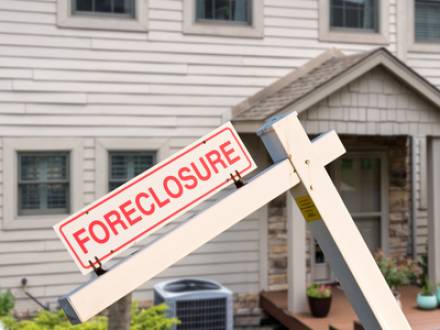 Foreclosure may sound like a problem only for the homeowner. Unfortunately, that is not always the reality. If you are renting a home, and your landlord’s property goes into foreclosure while you are living there, you may be left with nothing but questions. Can you be forced to leave your home? Are you still required to pay rent? Is your landlord the bank, the buyer, or is there still a landlord?
Foreclosure may sound like a problem only for the homeowner. Unfortunately, that is not always the reality. If you are renting a home, and your landlord’s property goes into foreclosure while you are living there, you may be left with nothing but questions. Can you be forced to leave your home? Are you still required to pay rent? Is your landlord the bank, the buyer, or is there still a landlord?
An Illinois foreclosure can be disruptive, to say the least. That said, there are certain protections in the state provided to tenants to keep them from being blindsided by a foreclosure and possible eviction. To find out more about how your landlord’s foreclosure could potentially affect you and your family, it can be beneficial to speak to a knowledgeable Grayslake, IL foreclosure defense lawyer.
How Could Foreclosure Affect Illinois Renters?
While an Illinois foreclosure transfers ownership, it does not erase the fact that tenants live in the home and have certain rights. Illinois renters are protected during a foreclosure by the federal Protecting Tenants in Foreclosure ACT (PTFA) and Illinois’ mortgage foreclosure laws (735 ILCS 5/15-1504).
Radon Disclosure: A Legal Obligation That Surprises Sellers
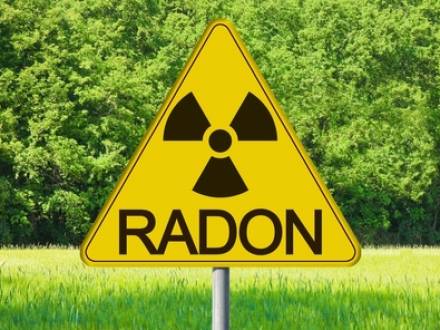 Illinois sellers may believe they have done everything right: they prepped their home for sale, ordered a home inspection, and made cosmetic upgrades. Now they are ready for showings and negotiating offers, yet many sellers in the state are unaware that they may have overlooked obligations involving radon. Radon is a naturally occurring radioactive gas associated with significant health risks, and it is something that neither buyers nor sellers may be aware of during real estate transactions.
Illinois sellers may believe they have done everything right: they prepped their home for sale, ordered a home inspection, and made cosmetic upgrades. Now they are ready for showings and negotiating offers, yet many sellers in the state are unaware that they may have overlooked obligations involving radon. Radon is a naturally occurring radioactive gas associated with significant health risks, and it is something that neither buyers nor sellers may be aware of during real estate transactions.
Home sellers in the state are legally obligated to disclose any known radon hazards to potential buyers. If the home seller is aware of the presence of radon and fails to disclose this fact, the result could be legal and financial headaches for many years to come. Both buyers and sellers must understand their radon disclosure responsibilities to prevent future disputes and protect buyers. Consulting a knowledgeable Waukegan, IL real estate lawyer ensures that both parties are protected regarding radon exposure.
Can Robo-Signed Documents Provide a Foreclosure Defense?
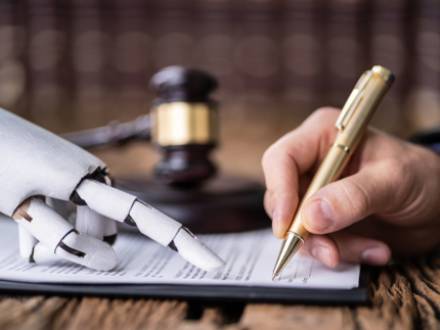 In the wake of the 2008 housing crisis, it came to light that bank employees or third-party contractors had signed thousands of foreclosure affidavits and mortgage documents without reviewing them. In turn, this led to wrongful foreclosures across the country. While some safeguards were put into place following this dark time, some Illinois homeowners may still face foreclosure cases built on questionable paperwork.
In the wake of the 2008 housing crisis, it came to light that bank employees or third-party contractors had signed thousands of foreclosure affidavits and mortgage documents without reviewing them. In turn, this led to wrongful foreclosures across the country. While some safeguards were put into place following this dark time, some Illinois homeowners may still face foreclosure cases built on questionable paperwork.
Knowing how to spot and challenge robo-signed documents can make all the difference between losing a home to foreclosure and keeping it. If you are facing foreclosure in Illinois, you should never assume the bank’s paperwork is without flaws. An experienced Round Lake, IL foreclosure defense attorney can identify robo-signed documents, potentially using them to fight for your home.
How Illinois Treats Tiny Homes in Real Estate Deals
 As a result of the current housing crisis, tiny homes are gaining popularity, despite their size (the average tiny home is about 10 times smaller than the average home). While tiny homes are certainly more affordable, with the average price at $67,000, they cost 38 percent more per square foot than full-sized homes. Almost three-fourths of tiny homeowners have no mortgage, as compared to only 29 percent of traditional homeowners with no mortgage.
As a result of the current housing crisis, tiny homes are gaining popularity, despite their size (the average tiny home is about 10 times smaller than the average home). While tiny homes are certainly more affordable, with the average price at $67,000, they cost 38 percent more per square foot than full-sized homes. Almost three-fourths of tiny homeowners have no mortgage, as compared to only 29 percent of traditional homeowners with no mortgage.
The national average cost of a conventional home is $272,000. A 30-year loan at 4.25 percent interest brings the cost of that home to $481,704, which is another reason more people are considering tiny homes. If you have your eye on a tiny home, it is important that you understand how Illinois real estate law treats tiny homes – from zoning and financing, to buying, selling, and property classification.
Do You Own the Sky? Air Rights and Real Estate in Illinois
 If you have never purchased property in a big city, you may not have heard the terms "air rights" or "vertical development." However, in dense areas like Chicago and New York, these terms are familiar to all real estate buyers and developers. Even if you are familiar with air rights, you may not think these rights have anything to do with residential real estate.
If you have never purchased property in a big city, you may not have heard the terms "air rights" or "vertical development." However, in dense areas like Chicago and New York, these terms are familiar to all real estate buyers and developers. Even if you are familiar with air rights, you may not think these rights have anything to do with residential real estate.
This is where you might be wrong. Property values in crowded cities depend on more than square footage – they can also hinge on what is above your roofline. Air rights encompass the ability to use or sell the space above your property and are often overlooked in Illinois real estate deals. Depending on the context, air rights can bring significant value or result in major headaches.
Even as a homeowner concerned about losing your skyline view, understanding how air rights work is important. If you are considering purchasing residential real estate in a crowded city area, it is always best to have an experienced North Chicago, IL real estate lawyer to help ensure you do not encounter any glitches.
Can Foreclosure Affect an Illinois Reverse Mortgage?
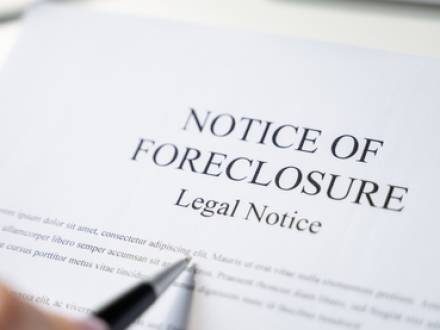 Increasingly, older Americans are choosing reverse mortgages, typically to supplement fixed incomes from Social Security or pensions that are insufficient to cover basic expenses. A reverse mortgage allows elderly homeowners to tap into the equity built up in their homes while remaining in their homes. Reverse mortgages are often used to pay for home repairs, improvements, and maintenance, or to cover substantial medical expenses.
Increasingly, older Americans are choosing reverse mortgages, typically to supplement fixed incomes from Social Security or pensions that are insufficient to cover basic expenses. A reverse mortgage allows elderly homeowners to tap into the equity built up in their homes while remaining in their homes. Reverse mortgages are often used to pay for home repairs, improvements, and maintenance, or to cover substantial medical expenses.
Reverse mortgages can be complex and expensive when all the fees are taken into account. The loan becomes due when the borrower dies, sells the home, or permanently relocates. If the borrower dies, the heirs will need to sell the house and repay the loan. What many people are unaware of is that there are a number of triggering events that can lead the lender to declare the loan "due and payable" and begin initiating foreclosure proceedings, while you are still living in the home.
Closing Day Disasters: Avoiding Illinois Real Estate Surprises
 Real estate closing day should be a celebration – the final step in buying or selling your Illinois home. Unfortunately, many find this day less than celebratory, as they are forced to engage in a last-minute scramble when unexpected issues arise.
Real estate closing day should be a celebration – the final step in buying or selling your Illinois home. Unfortunately, many find this day less than celebratory, as they are forced to engage in a last-minute scramble when unexpected issues arise.
According to the National Association of REALTORS, approximately 6 percent of contracts are terminated during closing, 14 percent of closings are delayed, and of those delayed, half are due to appraisal issues. Having a problem at closing can ruin your day and possibly even your real estate deal.
From title issues to missing documents, unexpected repair problems, or financing glitches, what can go wrong often does when details are overlooked. When you have an experienced Round Lake, IL real estate lawyer by your side throughout the process, you can avoid unpleasant closing day disasters.
Different Types of Foreclosure Workout Agreements
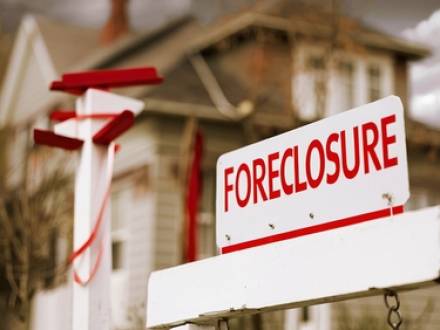 Facing home foreclosure can be devastating. For most people, their home is their refuge. Foreclosure makes homeowners less likely to buy another house in subsequent years, they are more likely to default on other debts, and their overall living arrangements become less secure.
Facing home foreclosure can be devastating. For most people, their home is their refuge. Foreclosure makes homeowners less likely to buy another house in subsequent years, they are more likely to default on other debts, and their overall living arrangements become less secure.
Unfortunately, a new study reveals that among the states with the highest rates of home foreclosures, Illinois ranks ninth, with one foreclosure for every 3,753 homes. By comparison, the state of Missouri has a foreclosure rate that is less than half that of Illinois, with one in every 7,112 homeowners facing foreclosure.
There are some solutions to foreclosure, including workout agreements that occur early on in the foreclosure process. The best step you can take if you are facing foreclosure is to speak to an experienced Grayslake, IL foreclosure defense attorney from Newland & Newland, LLP.
What Are Some Real Estate Red Flags When Purchasing a Home?
 Perhaps you have found your dream home. It has everything you want and need, and best of all, the price is amazing. Before you rush into a real estate purchase, remember that looks are often deceiving. Also, consider the old adage that if something seems to be too good to be true, it probably is.
Perhaps you have found your dream home. It has everything you want and need, and best of all, the price is amazing. Before you rush into a real estate purchase, remember that looks are often deceiving. Also, consider the old adage that if something seems to be too good to be true, it probably is.
Some of the biggest issues in homes – those issues that can suck your bank account dry within the first year – are hiding in plain sight. If you are unsure what you should be looking for, your dream home could end up being a lemon. Having a Round Lake, IL real estate attorney looking out for your best interests throughout the purchase can be extremely helpful.
What Are the 5 Things You Should Look Out for When Buying a Home?
You never want to spend the next few years regretting your home purchase. In order to avoid that, there are important issues you should look out for, or at least have someone else look out for on your behalf. Home inspections often reveal some of these issues, but not always. Before you sign on the dotted line, look closely at these issues.
Can You Buy a Home Without Waiting for Interest Rates to Drop?
 If you are planning on buying a home, you may have been closely watching mortgage interest rates to see if they could drop. Right now, the interest rate for a 30-year fixed-rate mortgage is 6.76 percent, and for a 15-year fixed-rate mortgage, it is 5.89 percent. These rates are almost double what we saw during the pandemic years. Current housing market data and financial data show little indication of a coming drop in interest rates.
If you are planning on buying a home, you may have been closely watching mortgage interest rates to see if they could drop. Right now, the interest rate for a 30-year fixed-rate mortgage is 6.76 percent, and for a 15-year fixed-rate mortgage, it is 5.89 percent. These rates are almost double what we saw during the pandemic years. Current housing market data and financial data show little indication of a coming drop in interest rates.
Add to that the fact that tariffs could make building materials considerably more expensive if you consider building a home. With all the uncertainty swirling around us, it could be smart to consider a home-buying strategy that is less about interest rates on your mortgage and more focused on home ownership. If you need assistance in your home-buying quest, you could benefit from speaking to an experienced Waukegan, IL real estate lawyer.
 Stop Foreclosure
Stop Foreclosure




















